BMW X3 vs Peugeot 5008 – Differences & prices compared
Two cars, one duel: BMW X3 meets Peugeot 5008.
Which one wins in performance, efficiency and value for money? Find out now!
The automotive landscape is continuously evolving, with manufacturers striving to create vehicles that meet the varied demands of drivers. In the realm of mid-size SUVs, the BMW X3 and the Peugeot 5008 represent two compelling options, each with its unique set of attributes. Here, we delve into a detailed comparison of these two vehicles, focusing on technical aspects and innovations that make them stand out.
Powertrain and Performance
When it comes to powertrains, the BMW X3 offers an impressive range of options. It features a mix of gasoline, diesel, and hybrid configurations, delivering power outputs between 190 HP and an audacious 510 HP in its performance-oriented models. The 0-100 km/h acceleration times range from a swift 3.8 seconds to a respectable 8.4 seconds, showcasing the X3's ability to cater to those seeking both efficiency and exhilaration.
On the other hand, the Peugeot 5008 presents a more modest but nonetheless capable powertrain lineup, focusing primarily on petrol and hybrid engines. The highest outputs reach 231 HP, with 0-100 km/h times varying from 8.8 seconds to 10.2 seconds. While the 5008 doesn't aim solely for high performance, it offers efficient alternatives with a commendable electric range, especially in hybrid variants that can travel up to 664 km on electric power alone.
Fuel Efficiency and Emissions
Fuel efficiency is a strong suit for both vehicles, but they tackle it differently. The BMW X3, particularly in its hybrid versions, can achieve fuel consumption as low as 2.1 L/100 km, with CO2 emissions dropping to an impressive 21 g/km in its plug-in hybrid variant. This makes the X3 a top choice for those prioritizing environmental responsibility alongside performance.
Conversely, the Peugeot 5008 shines with its electric variants and hybrid models. The most efficient engine can consume as little as 1 L/100 km, and its fully electric configuration produces zero emissions, echoing a strong commitment to sustainability. With CO2 efficiencies classed as A and B, the 5008 effectively positions itself as an eco-friendly family SUV.
Interior Space and Comfort
When it comes to interior space, the Peugeot 5008 takes the lead with its seven-seat configuration, making it ideal for families or those needing extra passenger capacity. With a trunk capacity of 748 liters, the 5008 also offers ample storage space for luggage and other items.
In contrast, the BMW X3 comfortably seats five passengers and provides a trunk space ranging from 450 to 570 liters, depending on the model. While the X3 may not match the 5008 in seating capacity, its interior is designed with a focus on luxury, featuring high-quality materials and cutting-edge technology, aligning with BMW’s premium brand image.
Technological Innovations
Both the BMW X3 and Peugeot 5008 boast advanced technology and features, making driving safer and more enjoyable. The BMW X3 is equipped with the latest in infotainment technology, including a high-resolution touchscreen, voice control, and a comprehensive digital cockpit that integrates driver assistance systems seamlessly. Features like adaptive cruise control and lane-keeping assist help improve driving dynamics, catering to tech-savvy consumers.
Similarly, the Peugeot 5008 is characterized by its innovative i-Cockpit setup, which features a compact steering wheel and an elevated instrument panel, enhancing driver engagement. Enhanced connectivity options, including smartphone integration and advanced navigation systems, ensure that passengers remain entertained and informed on the go.
Conclusion: Choosing Between Luxury and Practicality
Ultimately, the decision between the BMW X3 and the Peugeot 5008 will hinge largely on individual preferences and needs. The X3 appeals to those looking for a luxurious driving experience with powerful performance and advanced technological features. In contrast, the 5008 is an excellent choice for buyers seeking practicality with a focus on sustainability and family-friendly options.
As these two vehicles highlight the diverse offerings available in the SUV market, it's clear that both can carve out a unique niche for themselves. Whether one prioritizes performance or utility, the BMW X3 and Peugeot 5008 stand ready to fulfill those demands.
Here’s where it gets real: The technical differences in detail
Costs and Efficiency: Price and efficiency are often the first things buyers look at. Here it becomes clear which model has the long-term edge – whether at the pump, the plug, or in purchase price.
Peugeot 5008 has a clearly perceptible advantage in terms of price – it starts at 37600 £, while the BMW X3 costs 51300 £. That’s a price difference of around 13663 £.
Fuel consumption also shows a difference: the Peugeot 5008 manages with 1 L and is therefore clearly more efficient than the BMW X3 with 2.80 L. The difference is about 1.80 L per 100 km.
As for range, the Peugeot 5008 performs clearly better – achieving up to 674 km, about 586 km more than the BMW X3.
Engine and Performance: Power, torque and acceleration are the classic benchmarks for car enthusiasts – and here, some clear differences start to show.
When it comes to engine power, the BMW X3 has a to a small extent edge – offering 398 HP compared to 325 HP. That’s roughly 73 HP more horsepower.
In acceleration from 0 to 100 km/h, the BMW X3 is clearly quicker – completing the sprint in 4.60 s, while the Peugeot 5008 takes 6.50 s. That’s about 1.90 s faster.
In terms of top speed, the BMW X3 performs to a small extent better – reaching 250 km/h, while the Peugeot 5008 tops out at 220 km/h. The difference is around 30 km/h.
There’s also a difference in torque: the BMW X3 pulls clearly perceptible stronger with 670 Nm compared to 511 Nm. That’s about 159 Nm difference.
Space and Everyday Use: Whether family car or daily driver – which one offers more room, flexibility and comfort?
Seats: Peugeot 5008 offers noticeable more seating capacity – 7 vs 5.
In curb weight, the Peugeot 5008 is to a small extent lighter – 1700 kg compared to 1930 kg. The difference is around 230 kg.
In terms of boot space, the Peugeot 5008 offers clearly more room – 994 L compared to 570 L. That’s a difference of about 424 L.
In maximum load capacity, the Peugeot 5008 performs evident better – up to 2310 L, which is about 610 L more than the BMW X3.
When it comes to payload, Peugeot 5008 slightly takes the win – 699 kg compared to 570 kg. That’s a difference of about 129 kg.
Our conclusion: The Peugeot 5008 proves to be leaves the rival little chance and thus becomes our DriveDuel Champion!
Overall, Peugeot 5008 is the better all-rounder in this comparison.
BMW X3
The BMW X3 stands out in the competitive SUV market with its refined blend of performance and luxury. Its interior boasts high-quality materials and a design focused on driver comfort and convenience. With a robust engine lineup, the vehicle offers a balanced driving experience that caters to both urban settings and off-road adventures.
details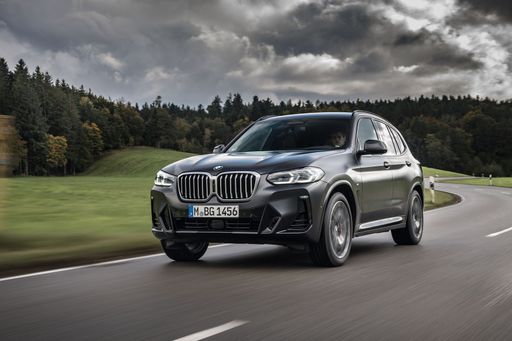 @ press.bmwgroup.com
@ press.bmwgroup.com
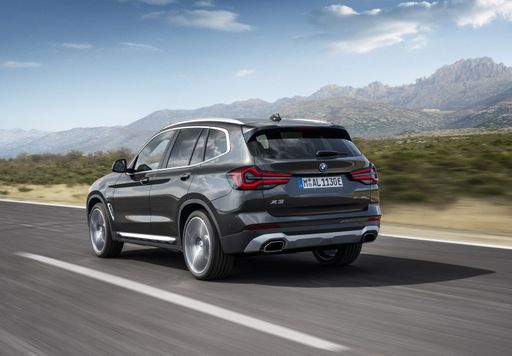 @ press.bmwgroup.com
@ press.bmwgroup.com
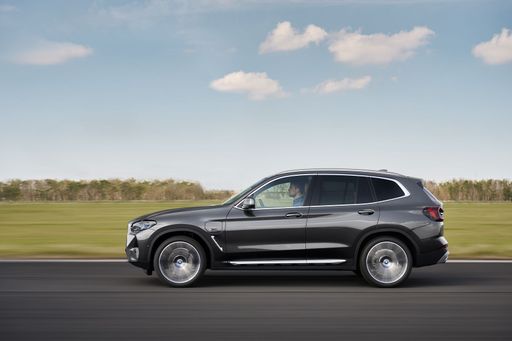 @ press.bmwgroup.com
@ press.bmwgroup.com
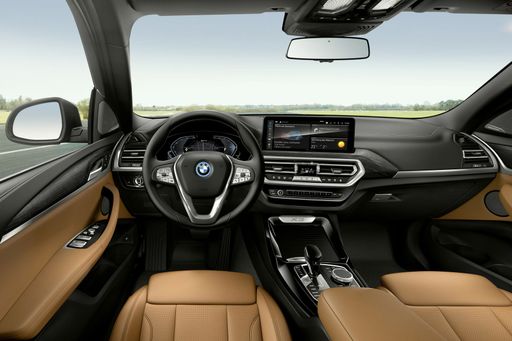 @ press.bmwgroup.com
@ press.bmwgroup.com
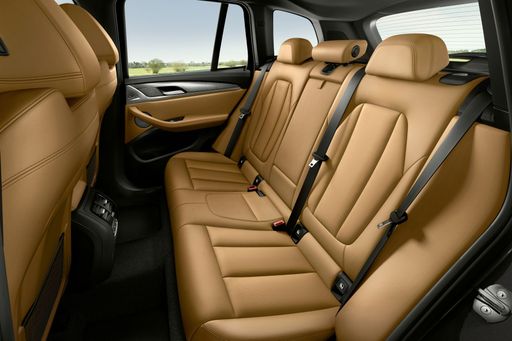 @ press.bmwgroup.com
@ press.bmwgroup.com
Peugeot 5008
The Peugeot 5008 impresses with its sleek design and spacious interior, making it an appealing choice for families and those needing extra room. Its elegant exterior lines are complemented by a well-crafted cabin that offers both comfort and versatility, ideal for longer journeys or everyday use. With a range of modern features and technology, the 5008 delivers a balanced blend of style and functionality that enhances the driving experience.
details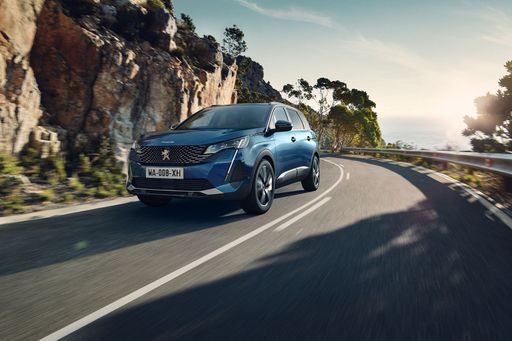 @ media.stellantis.com
@ media.stellantis.com
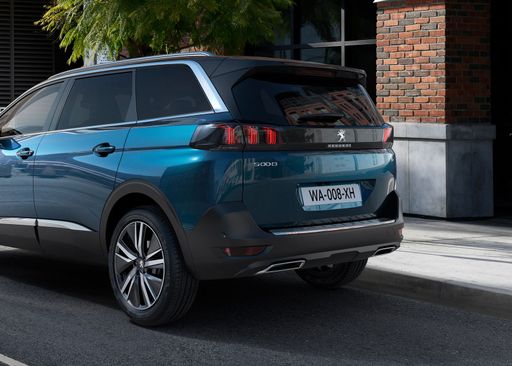 @ media.stellantis.com
@ media.stellantis.com
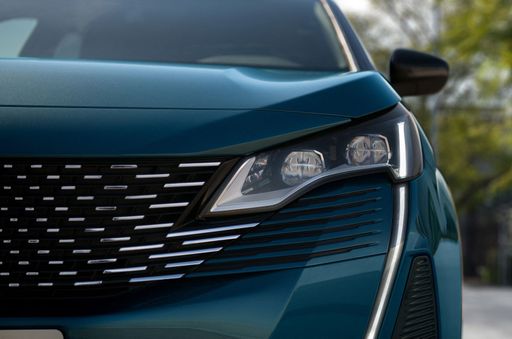 @ media.stellantis.com
@ media.stellantis.com
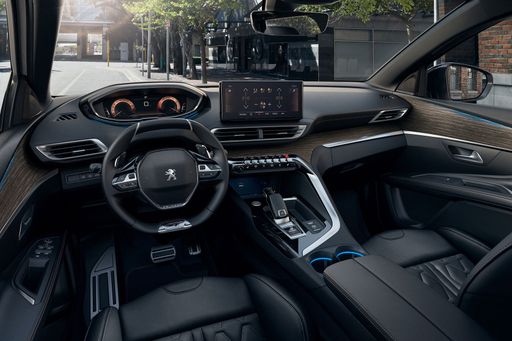 @ media.stellantis.com
@ media.stellantis.com

|

|
|
|
|
Costs and Consumption |
|
|---|---|
|
Price
51300 - 72400 £
|
Price
37600 - 53600 £
|
|
Consumption L/100km
2.8 - 7.7 L
|
Consumption L/100km
1 - 5.6 L
|
|
Consumption kWh/100km
-
|
Consumption kWh/100km
17.8 - 18.6 kWh
|
|
Electric Range
88 km
|
Electric Range
79 - 674 km
|
|
Battery Capacity
19.70 kWh
|
Battery Capacity
0.4 - 96.9 kWh
|
|
co2
64 - 175 g/km
|
co2
0 - 127 g/km
|
|
Fuel tank capacity
50 - 65 L
|
Fuel tank capacity
55 L
|
Dimensions and Body |
|
|---|---|
|
Body Type
SUV
|
Body Type
SUV
|
|
Seats
5
|
Seats
5 - 7
|
|
Doors
5
|
Doors
5
|
|
Curb weight
1930 - 2140 kg
|
Curb weight
1700 - 2406 kg
|
|
Trunk capacity
460 - 570 L
|
Trunk capacity
294 - 994 L
|
|
Length
4755 mm
|
Length
4791 mm
|
|
Width
1920 mm
|
Width
1895 mm
|
|
Height
1660 mm
|
Height
1694 mm
|
|
Max trunk capacity
1600 - 1700 L
|
Max trunk capacity
1815 - 2310 L
|
|
Payload
570 kg
|
Payload
534 - 699 kg
|
Engine and Performance |
|
|---|---|
|
Engine Type
Petrol MHEV, Diesel MHEV, Plugin Hybrid
|
Engine Type
Plugin Hybrid, Electric, Petrol MHEV
|
|
Transmission
Automatic
|
Transmission
Automatic
|
|
Transmission Detail
Automatic Gearbox
|
Transmission Detail
Dual-Clutch Automatic, Reduction Gearbox
|
|
Drive Type
All-Wheel Drive
|
Drive Type
Front-Wheel Drive, All-Wheel Drive
|
|
Power HP
197 - 398 HP
|
Power HP
145 - 325 HP
|
|
Acceleration 0-100km/h
4.6 - 7.8 s
|
Acceleration 0-100km/h
6.5 - 10.2 s
|
|
Max Speed
215 - 250 km/h
|
Max Speed
170 - 220 km/h
|
|
Torque
330 - 670 Nm
|
Torque
230 - 511 Nm
|
|
Number of Cylinders
4 - 6
|
Number of Cylinders
3 - 4
|
|
Power kW
145 - 293 kW
|
Power kW
107 - 239 kW
|
|
Engine capacity
1995 - 2998 cm3
|
Engine capacity
1199 - 1598 cm3
|
General |
|
|---|---|
|
Model Year
2024 - 2025
|
Model Year
2024 - 2025
|
|
CO2 Efficiency Class
F, E, B
|
CO2 Efficiency Class
B, A, D
|
|
Brand
BMW
|
Brand
Peugeot
|
What drive types are available for the BMW X3?
The BMW X3 is offered with All-Wheel Drive.
The prices and data displayed are estimates based on German list prices and may vary by country. This information is not legally binding.
